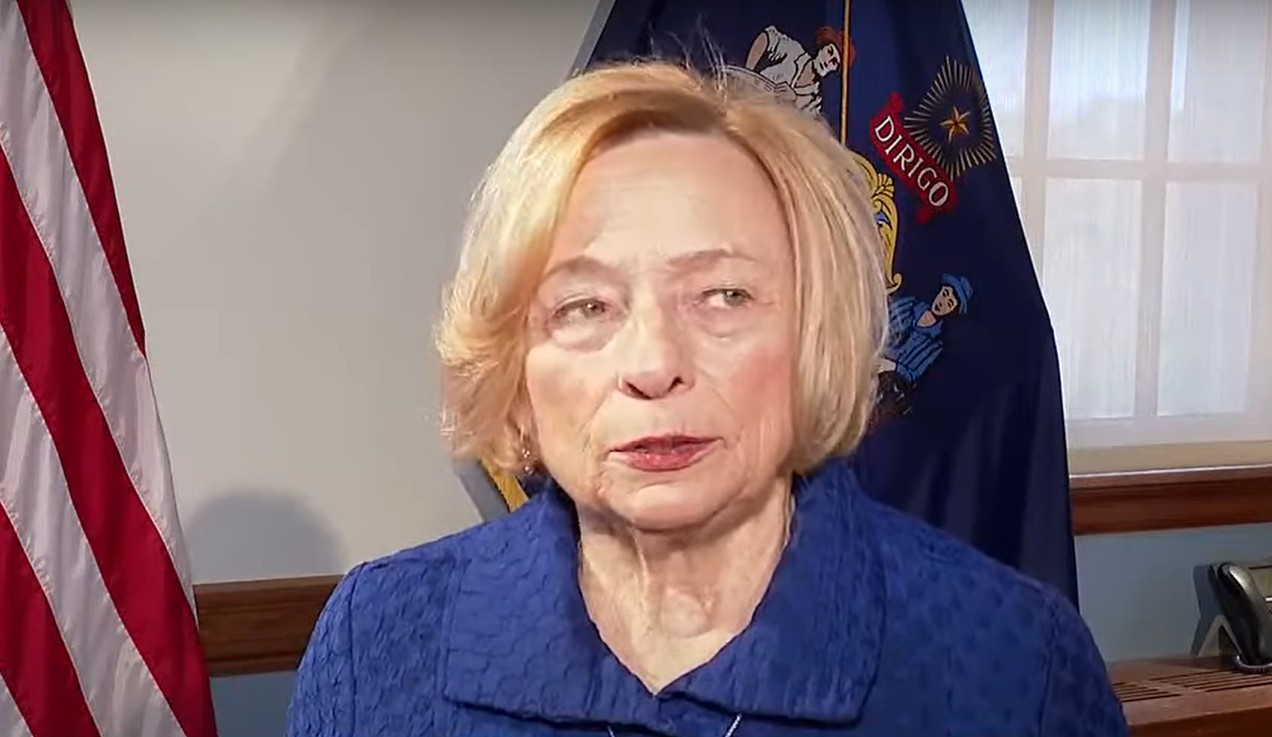Utah Considers Ranked-Choice Voting In Primaries Despite Disasters In Alaska And Maine
Despite disasters in Alaska, Maine, as well as multiple U.S. communities, Utah is now considering legislation to adopt their path.
House Bill 205 The Utah House of Representatives passed it on February 17. It is currently up for a vote in Senate. This measure would allow local jurisdictions switch from a winner takes all voting system to a ranked-choice system for federal and state primary elections.
Voters would need to rank five candidates in order to vote for an election under such a system. A candidate cannot win more than 50% of the votes in the first round. “instant runoff” It would be held between two of the highest vote-getters.
Votes for those candidates who did not make the cut would be transferred to the two top vote-getters in accordance with voters’ rankings until one or more of the top two vote-getters achieves a majority. This means that candidates cannot win with just a plurality of votes.
After local officials reported, House Bill 205 was introduced. multiple problems With enacting RCV pilot programs in county elections. Due to the complexity of RCV’s tabulation process, many ballots are not being counted.
For example, 58 percent of ballots were either discarded or spoiled in 2021’s Genola City Council Race, often because those voters failed to rank a second choice, according To the Election Transparency Initiative. “Ballots with one candidate selected for a specific position are not eligible.exhausted“thrown out” means that the voter’s top choice is not chosen by a majority of voters in the first round. This can prevent election-tipping votes from being counted towards the final results.
“The pilot program has not gone well,” The Federalist heard from Jason Snead who is the executive director for Honest Elections Project. “There have been a number of jurisdictions that have likened it to being treated like a guinea pig and have noted all the problems we’ve seen with RCV elsewhere. It discourages turnout, it’s complicated, it’s expensive. All of the benefits that were promised have failed to materialize.”
Oakland residents have experienced a variety of problems with RCV. Officials announced the results of the election after close to two months’ worth of tabulation. they got the count wrong Due to an error in computer-programming, the complicated results were tabulated. The candidate with the highest number of votes won in the election was therefore suing His seat.
RCV can be used to facilitate upside-down elections and their results. It subverts the will to vote by helping push out insurgent candidates For establishment-backed candidates that can’t win, they have to be supported by the majority of their party’s voter base. This is how Republican Alaska senator Lisa Murkowski was successful. win her primary Kelly Tshibaka (Trump-backed) during the 2022 midterms.
Murkowski was the second choice of many Democratic voters in the jungle primary. This resulted in Murkowski winning a majority vote on the second round tabulation. RCV is also how Democrat Mary Peltola, despite the fact that nearly 60% of voters voted for a Republican, won Alaska’s lone Congress seat last year.
According to a Letter to the Editor The Salt Lake Tribune reported that RCV could also possibly be used. oust Republican Sen. Mike Lee from office In favor of a Democrat approved U.S. Senator in a tight divided U.S. Senate. Lee didn’t respond to requests for comment.
“Under RCV, liberal politicians get elected to office and conservative candidates are defeated,” National Chairman of the Election Transparency Initiative and former Virginia Attorney General Ken Cuccinelli said in a press release. “Now more than ever, we need to protect the integrity of our elections, but House Bill 205 would do the opposite and erode voters’ confidence in elections where every vote counts fairly, openly, and equally… Utah should be getting rid of the RCV scheme, not expanding it!”
As mentioned previously reported According to The Federalist, many states have adopted legislation banning RCV. These include South Dakota and Montana. North DakotaAnd Idaho.
Victoria Marshall is a staff writer for The Federalist. Her writing has appeared in The Federalist, National Review, Townhall, and the New York Post. Hillsdale College graduated her in May 2021, with a double major in journalism and politics. Follow her @vemrshll on Twitter
From Utah Considers Ranked-Choice Voting In Primaries Despite Disasters In Alaska And Maine
Conservative News Daily is not required to endorse the views or opinions expressed here.
" Conservative News Daily does not always share or support the views and opinions expressed here; they are just those of the writer."





Now loading...